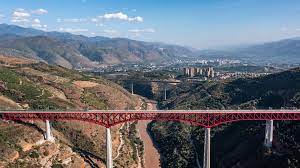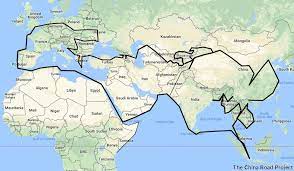10 years on, BRI shares opportunities with world

Boao: When Lin Guangming came to south China’s Hainan Province, he was fascinated by the massive opportunities presented by the fledgling free trade port and the Belt and Road Initiative (BRI).
Lin, an overseas Chinese with Singaporean citizenship, came to Hainan in 2020 and became the chief planner for the Yangpu Economic Development Zone management committee.
“Thanks to the BRI, people like me have the chance to show their talents,” Lin said. “I am doing practical city planning work and serving the cities along the Belt and Road.”
Having been engaged in urban planning and construction for years, Lin aims to transfer Singapore’s philosophy and good practices to Chinese cities and he has worked in many cities along the Belt and Road, such as Chongqing and Chengdu.
“Practice has proven that the BRI is a success in terms of project cooperation, policy communication, fund circulation and others,” said Lin.

Borrowing the idea of the ancient “Silk Road” that once linked Asia and Europe with vibrant trade, China envisioned the BRI as a framework connecting countries around the world through trade, investment, infrastructure development, and people-to-people exchanges, among others.
As a primary hub along the 21st Century Maritime Silk Road, Hainan has made use of favorable supporting policies and its unique advantages to pioneer the country’s high-level opening up.
At the ongoing Boao Forum for Asia Annual Conference 2023 held in Hainan, the BRI is again a keenly-discussed topic.
Mongolian Minister of Economy and Development Chimed Khurelbaatar, said the BRI brings benefits and common prosperity for its participating countries.
Statistics show that over the past decade, 151 countries and 32 international organizations have joined the initiative. It has generated nearly a trillion U.S. dollars in investment, established over 3,000 cooperation projects, created some 420,000 jobs in countries along the routes, and helped lift nearly 40 million people out of poverty.





